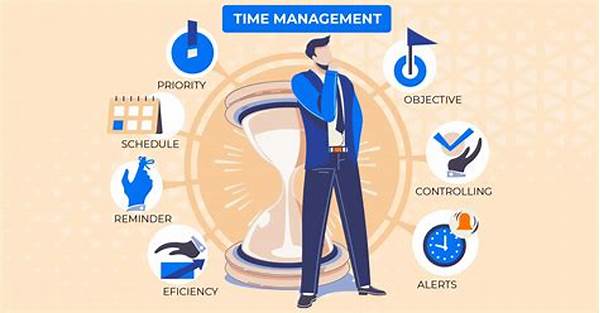- Balancing Priorities and Delegating Tasks
- Description: The Essence of Time Management for Managers
- The Strategic Approach to Time Management
- Eight Actions Related to Time Management for Managers
- Mastering Time Management Techniques
- The Impact of Time Management on Leadership
- Tips for Time Management for Managers
In today’s fast-paced business world, effective time management is not just a skill; it’s a critical component of success, especially for managers. The purpose of this article is to explore the concept of time management for managers, delving into its relevance, effectiveness, and impact on leadership roles within organizations. Time management enables managers to prioritize tasks, optimize productivity, and ensure that all organizational goals are met efficiently. But what exactly is time management for managers, and how can you harness this skill to propel your team and business forward?
Read More : Time Management Pdf
Imagine Jane, a project manager leading a team of ten professionals in a tech company. Every day, she faces tight deadlines, endless meetings, and unforeseen challenges that require immediate attention. How does Jane manage her day to ensure everything runs smoothly? The secret lies in mastering time management. By understanding how to allocate her time effectively, Jane is able to streamline operations, delegate responsibilities, and carve out quality time for strategic planning.
Time management is more than just apportioning hours to tasks. For managers, it involves setting clear priorities, developing a productive mindset, and being adaptable to change. The goal is to achieve a perfect balance between efficiency and creativity, allowing for both structured work processes and innovative solutions. In today’s highly competitive business environment, understanding what is time management for managers can give you and your team a strategic edge.
Moreover, implementing time management techniques can reduce stress levels, enhance decision-making, and improve job satisfaction among team members. By adopting strategies such as time-blocking, the Eisenhower Matrix, and setting SMART goals, managers can provide a roadmap for team success and foster a more productive work culture. If you’re a manager looking to enhance your time management skills, it is essential to embrace continuous learning and be open to adopting new tools and methodologies that suit your unique working style.
Balancing Priorities and Delegating Tasks
As managers, balancing multiple priorities while maintaining the team’s morale is a common challenge. Time management is the key to overcoming this obstacle. Managers need to frequently reassess their priorities and delegate tasks effectively to ensure the team’s goals align with the company’s objectives. Understanding what is time management for managers means realizing the value of every minute and making informed decisions about how to spend it.
—
Description: The Essence of Time Management for Managers
Time management is a buzzword thrown around in corporate corridors, but what does it truly mean for a manager? In the simplest terms, it involves orchestrating time to accomplish tasks efficiently. But beyond its surface definition lies a complexity that is vital to the role of any manager. With the many hats managers wear daily, mastering time is as important as mastering the latest business strategy.
Time management for managers translates to being able to identify crucial tasks, allocate time for them, and foresee potential roadblocks. It’s about being a visionary, someone who foresees potential crises and navigates the team around them. The concept is akin to being a conductor in an orchestra; while the symphony might have sounded average without guidance, with a skilled conductor, it becomes harmonious and impactful.
Why is time management especially crucial for managers? Because managing a team effectively requires awareness not only of one’s own time but also the time of others. Time management provides the freedom to explore new innovations and steer the team towards growth. It’s the unspoken assurance in knowing there’s ample space for creativity, without sacrificing productivity. This clarity boosts confidence and instills respect among team members.
The Strategic Approach to Time Management
Strategically, time management empowers managers to set realistic deadlines and track progress effectively. It comes with the understanding that every project and task, no matter how minute, contributes to the larger objectives of the company. When managers succeed in the art of time management, they become invaluable assets, creating an environment where efficiency meets inspiration.
The Emotional and Rational Aspects
On an emotional level, effective time management reduces the panic associated with tight deadlines, creating a serene and motivated atmosphere. Rationally, it’s a tool for demonstrating leadership and success. Embracing time management techniques such as periodic reviews and prioritization strategies helps managers transform chaos into order and vision into reality.
—
Eight Actions Related to Time Management for Managers
Mastering Time Management Techniques
Managers often find themselves juggling numerous responsibilities. Effective time management is a crucial skill that can transform how managers handle these demands. Starting with prioritizing tasks, managers can use tools such as to-do lists and priority charts to focus on what genuinely matters. This alleviates stress and creates an atmosphere conducive to productivity.
The art of delegation plays a vital role in effective time management. When managers assign tasks according to team members’ strengths, they allow their team to shine while freeing up their own time for strategic planning. Mastering delegation reduces burnout and fosters a sense of ownership among team members, leading to enhanced team morale and efficiency.
Reviewing your approach on a regular basis is also essential. This helps managers understand what’s working and what needs adjustment. Feedback is gold in this process, as it provides insights into potential blind spots and helps refine strategies. In essence, when managers embrace these components of time management, they create a thriving work environment where productivity and innovation can flourish.
The Impact of Time Management on Leadership
Building a Productive Team Environment
Time management doesn’t only benefit managers; it directly impacts the efficiency and morale of the entire team. A manager who masters time management is akin to a captain steering a ship confidently through the waters. They empower their team by modeling effective time practices, fostering a culture of productivity.
Cultivating a Culture of Innovation
When managers lead by example with stellar time management, they instill a culture of punctuality, respect, and accountability. This ripple effect boosts morale and adds value to the company’s ethos. Employees feel inspired to follow suit, finding new ways to enhance productivity through creative solutions and proactive problem-solving.
—
Tips for Time Management for Managers
Effective time management for managers is not just about getting through your to-do list. It’s about strategically aligning your time with the company’s goals. By cultivating these five tips, you enable a transition from a reactive to a proactive management style. This shift can significantly enhance your effectiveness as a leader, setting the stage for a harmonious balance between professional responsibilities and personal growth.
Moreover, integrating these time management practices helps build a supportive team environment where each member understands their role and contributions. As productivity increases, so does the potential for innovation and creativity. By mastering these skills, managers can ensure that time amplifies their team’s capabilities, elevating their organization to new heights.
In conclusion, embracing time management techniques can fundamentally redefine a manager’s approach to leadership. It provides a framework that not only improves efficiency but fosters a culture of success and empowerment. With attention to these details, managers can transform challenges into opportunities, making every second count in the journey towards business success.


